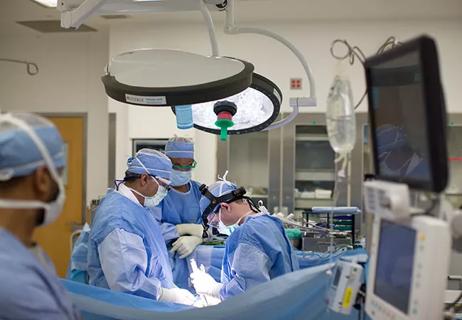Locations:

Q&A with the director of Cleveland Clinic’s distinctive spine surgery fellowship
Advertisement
Cleveland Clinic is a non-profit academic medical center. Advertising on our site helps support our mission. We do not endorse non-Cleveland Clinic products or services. Policy
Advertisement